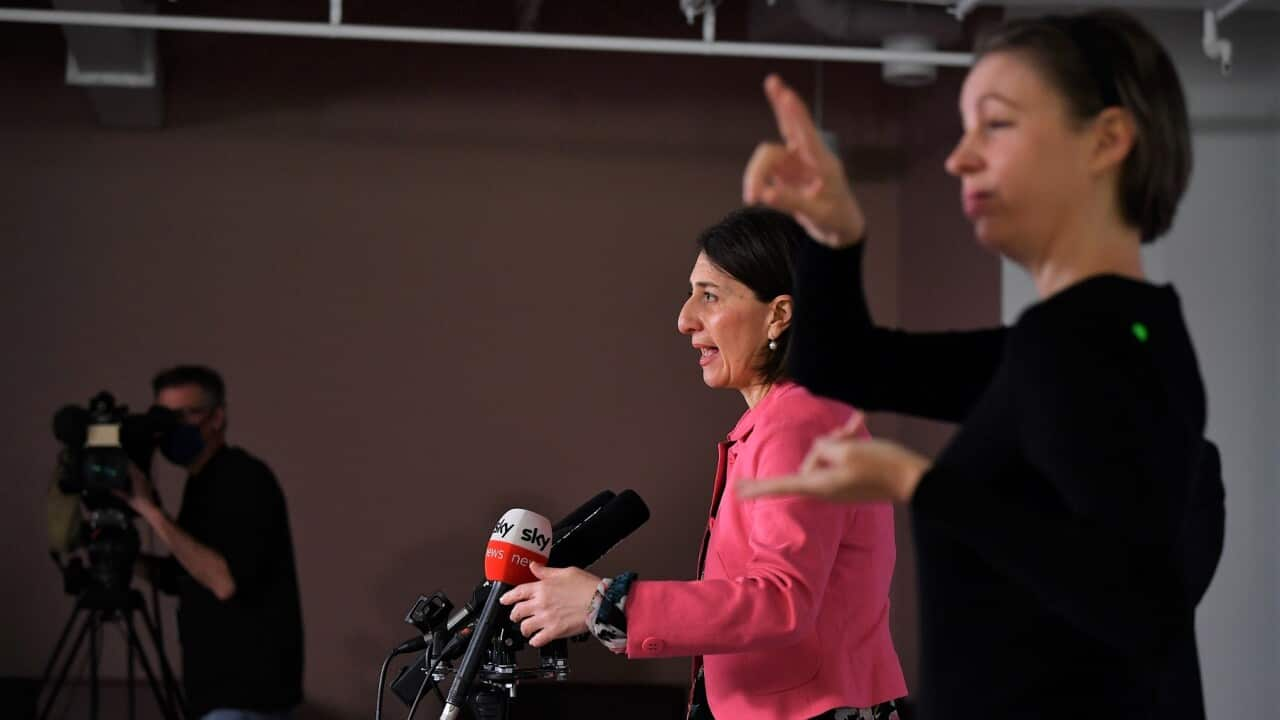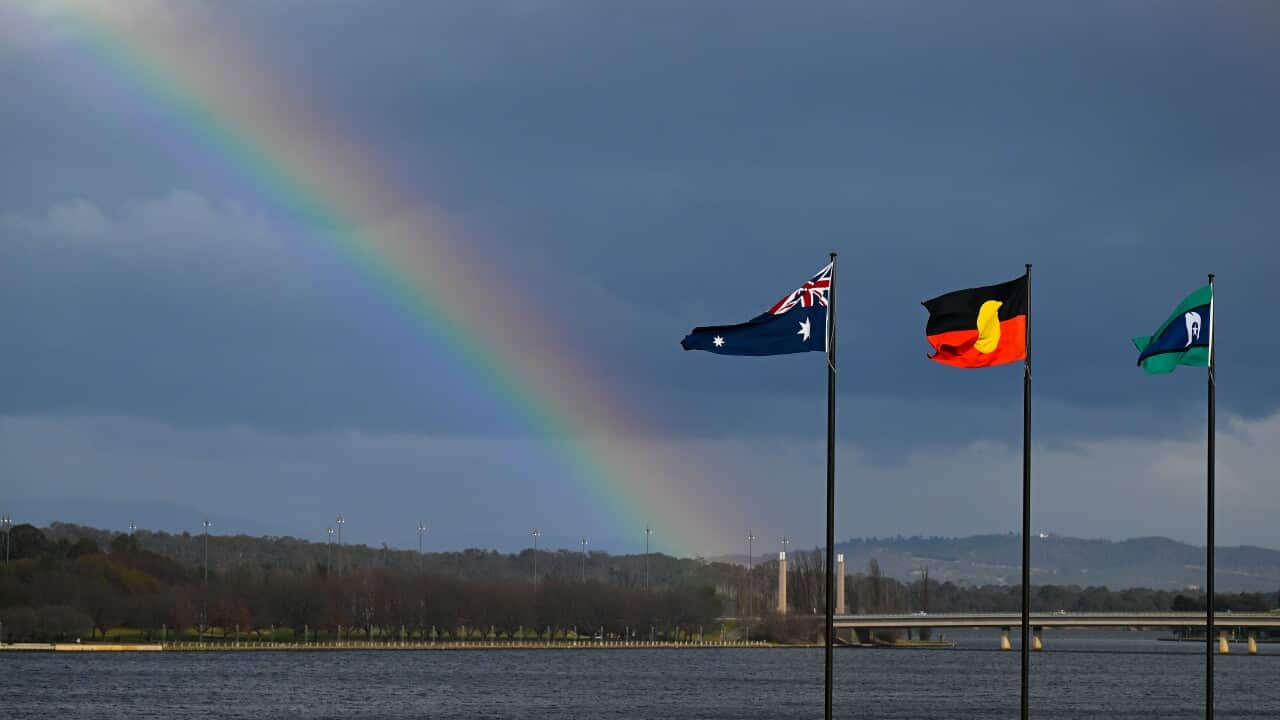The increase of Auslan interpreters in news conferences and the national census has significantly assisted those in Australia's deaf community.
But existing misconceptions and barriers in the wider community mean many still don't feel fully included.
As a member of the deaf community, Olivia Beasley [[bees-lee]] is sometimes subject to discrimination online.
A Twitter user told Olivia to "just wear a hearing aid" on her post advocating for use of Australian sign language, or Auslan interpretations, on television.
"I think being told to wear a hearing aid really just broke me a little bit, because it really said to me that the wider community don't understand us as people."
New technologies, like hearing aids or Cochlear implants, are widely used in the deaf community to improve hearing.
But Olivia says it's just another example of how deaf people have to change to make it easier for the wider community, instead of the community adapting to them.
"The common misconception from the mainstream community is that everyone who is deaf, has the same level of deafness and that hearing aids work exactly the same for everybody - which they don't. Everyone uses hearing aids and Cochlear implants in different ways. Some people use hearing aids for environmental noise like aeroplanes or ambulances, or safety reasons. Some people use hearing aids for communication, some people don't."
Nicky Long is the CEO of not-for-profit charity Expression Australia, which provides opportunities for Australia's deaf community.
She says the technology alone cannot replace the sense of belonging a shared language like Auslan can.
"You grow up with a Cochlear implant as a child, you may or may not feel like you fit in, in your community. And many kids later in life will discover the deaf community and say 'well actually I want to learn Auslan, I don't want my Cochlear implant.' Or 'I want my Cochlear implant when I want to use it.' So they make the choice to sometimes live in both worlds and both communities."
Over 3.6 million Australians are deaf or hearing impaired.
And many choose to communicate in Auslan - the language of the Australian deaf community.
"I have a well-rounded rich life. Auslan has given me a language. Auslan has given me the ability to talk with people, with a beautiful language. And with the provision of interpreters and other information in Auslan, that's how I access the world."
Sign languages have national and international differences in culture and community.
Auslan has a history dating back to Australia's early settlers.
As the daughter of deaf parents, Olivia has been fortunate enough to have grown up with Auslan, unlike many other deaf children.
"So because my parents use Auslan, I'm able to understand everything they say to me. We have a normal life where we're able to have discussions around the dinner table about different topics, so I really feel that my life is privileged in that way."
The deaf community has praised more inclusive changes to the Australian Census this year, including over 60 videos featuring Auslan interpreters.
And the presence of Auslan interpreters at important news conferences, including those during the Black Summer bushfire and more recently COVID-19, has dramatically helped the deaf community gain quick access to information.
"Last Sunday was the roadmap announcement by the Victorian government. If that wasn't interpreted, we'd probably have access to that information via a translation because the information is in English - English isn't my first language - so that would take some time to produce a translation. And we'd receive that information after the fact. So being able to access information in my language, is gold."
The National Week of Deaf People is running from 20-26 September to celebrate the deaf community.
Olivia, who also works at Expression Australia as a Community Engagement Manager, says there are many achievements to celebrate but still many barriers to fight.
She says many in the deaf community speak about supply and demand of interpreters in the workforce.
"Deaf people are able to study at university, which they weren't able to do before, work and get promotions. So to do that, you need an interpreter to access what's going on at work. The lack of interpreters is a barrier to people's ability to access information, work and other sectors."
Nicky Long says that assistance needs to start in the classroom.
"There are some fantastic examples in and around our country of schools that are really well set-up, who have teachers that are deaf-aware-trained. Many of whom are bilingual, as well as bi-cultural and who are extraordinary supports for the deaf or hard of hearing child."
She says disability is yet another kind of diversity, which shows how much can be gained from an inclusive society.
"My perspective, versus your perspective, versus somebody who is deaf's perspective of the world, adds up to a whole perspective. So each one of us has a view, an experience, sees things through a different lens."













